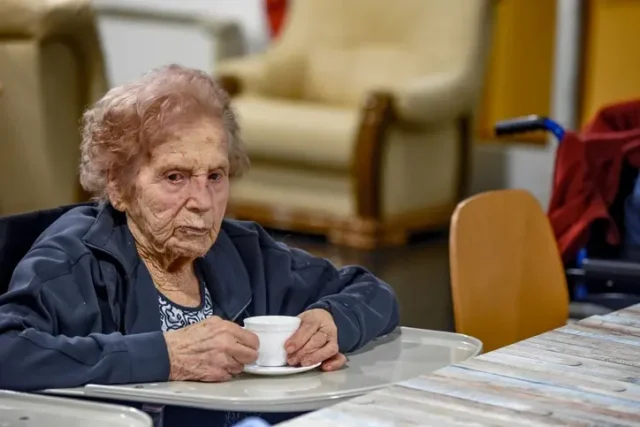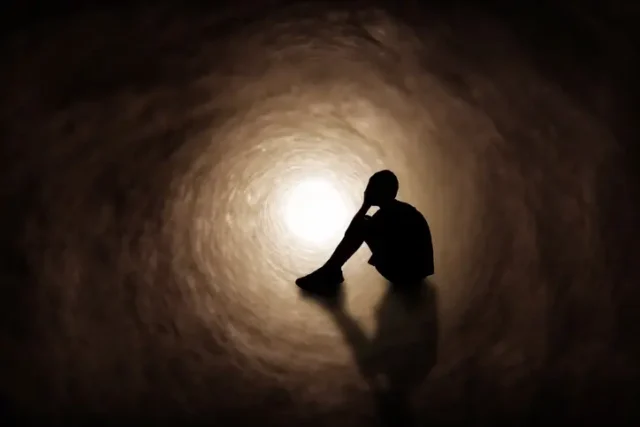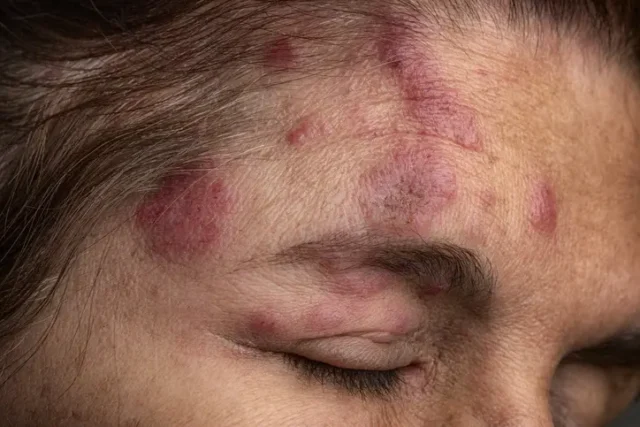The beautiful state of Utah saw a dramatic population change of 21.8% in the last decade. Over 400,000 people aged 65+ live in Utah, meaning 1 in 10 Utahns belong in that age group. With a rising elderly demographic, the chance of nursing home abuse in Utah happening increases as well.
In fact, according to a report from the Disability Law Center, residents have died as regulators seem “reluctant” to shut down problematic facilities. Utah nursing homes like Evergreen Place operate under dangerous conditions even when fined by the state’s DHHS.
“Local media coverage reported Evergreen was closed because the facility had been without heat during winter months, was covered in raw sewage, and had a severe bed bug infestation.”
–Disability Law Center, The License to Mismanage: Investigating Utah’s Troubled Long Term Care System
If your loved one suffered abuse or neglect in a Utah nursing home, it’s time to speak with a nursing home neglect attorney. Your loved one deserves a settlement payment for their suffering. If you live in or near Park City or Salt Lake City, it is time to learn their rights and take action if they’ve been violated.
Free Nursing Home Neglect Evaluation
Were you or your loved ones victims of abuse? Click here to speak with a nearby attorney for FREE about your Nursing Home Neglect claim.
or call (888)-927-3080
Nursing Home Resident Rights in Utah
Federal laws like the Nursing Home Reform Act provide basic rights to all U.S nursing homes. Utah resident rights are carefully enumerated by state law too, and must be visible for all admitted nursing home residents:
- To be treated with respect, consideration, fairness, and full recognition of personal dignity and individuality;
- To be transferred, discharged, or evicted by the facility only in accordance with the terms of the signed admission agreement;
- Freedom from mental and physical abuse, and chemical and physical restraints;
- Privacy during visits with family, friends, clergy, social workers, ombudsmen, resident groups, and advocacy representatives;
- Ability to share a unit with a spouse if both consent and are facility residents;
- Privacy when receiving personal care or services;
- Keeping personal possessions and clothing as space permits;
- Participation in religious and social activities of the resident’s choice;
- Proper interaction with members of the community, both inside and outside the facility;
- To send and receive mail unopened;
- Access to telephones to make and receive private calls;
- Arranging for medical and personal care
In addition, all residents have the right to at least 100 square feet of personal space in single rooms or 80 square feet of space in multiple resident rooms. Also, all facilities must acquire immediate care from a qualified physician as soon as a patient is admitted.
Ensure you and your attorney know your rights, because not all nursing home regulations are limited to the list above. A specialized Utah nursing home attorney knows how to craft your lawsuit against an abusive nursing home.
What is Nursing Home Abuse in Utah?

According to Utah Code § 76-5-111, “abuse” is defined as:
- Attempting to cause harm, intentionally or knowingly causing harm, or intentionally or knowingly placing another in fear of imminent harm;
- causing physical injury by knowing or intentional acts or omissions;
- Unreasonable or inappropriate use of physical restraint, medication, or isolation that causes or is likely to cause harm to a vulnerable adult that is in conflict with a physician’s orders or used as an unauthorized substitute for treatment, unless that conduct furthers the health and safety of the vulnerable adult.
If you see visible harm done to your loved one like sudden bruises or cuts and lacerations, seek legal action. One risk factor of nursing home abuse is physical or financial dependency. The more dependent your loved one may feel towards their caretakers, the higher the likelihood of abuse or neglect.
Neglect

Neglect is defined by Utah law as the failure of a caretaker to:
- Provide nutrition, clothing, shelter, supervision, personal care, or dental or other health care, or
- Ensure protection from health and safety hazards or maltreatment;
- Give care to a vulnerable adult in a timely manner and with the degree of care that a reasonable person in a similar position would exercise;
- Prevent pattern of conduct by a caretaker, without the vulnerable adult’s informed consent, resulting in deprivation of:
- Food and water
- Medication
- Health care
- Shelter
- Cooling and heating, or other services necessary to maintain the vulnerable adult’s well being;
- Carry out a prescribed treatment plan that can potentially result in physical injury or physical harm; or abandonment by a caretaker.
Nursing home neglect can be subtle and your loved one may fear retaliation from their abusive caretakers. Make sure to confirm their immediate safety while reporting abuse or neglect. Don’t be afraid to call 911 or involve the authorities if you believe they’re immediate safety is at-risk.
Early Signs of Nursing Home Abuse in Utah

Be aware of the red flags of abuse if you suspect wrongdoing done to your loved one. When suspecting physical nursing home abuse, look for:
- Bruising
- Bleeding
- Unexplained loss of mobility
- Repeated ER visits
- Unexplained injuries
Emotional abuse leaves no direct physical injuries, but there are signs this type of behavior is happening such as:
- Emotional withdrawal
- Less eye contact than normal when loved ones visit
- Being unwilling to speak freely or answer questions
- Willful isolation
- Changes in sleeping habits
- Emotional distress when left alone
Financial abuse is tricky to identify. Spotting the warning signs is crucial to stopping further extortion and theft before it’s too late. Make sure your loved one isn’t experiencing the following signs of financial exploitation:
- A lack of access to the resident’s finances
- Unexplained transfer of assets or money to another person
- Unexpected changes to a resident’s banking info
- Abrupt changes to their will or other financial assets
- Recent reluctance to talk about financial matters
- Sudden loss of personal belongings
- Balance statements with transfers to another caregiver
What Causes Nursing Home Abuse in Utah?
Abuse and neglect can be caused by a facility failing to train and/or supervise staff. Nursing home abuse is more common now due to ongoing staffing issues in the nursing home industry. Underpaying and overscheduling staff members can also lead to neglect as there aren’t enough caregivers on-premises.
Workers with minimal training may be required to perform tasks they don’t know how to perform. As discussed above, the population of 65+ nursing home residents is increasing, but there’s not enough workers to service the demand.
How to Report Nursing Home Abuse in Utah
Immediately notify Adult Protective Services by calling 1-800-371-7897, or by contacting local law enforcement if you think a vulnerable adult is immediately abused, neglected, or exploited.
Utah Ombudsman
A good way to answer your nursing home abuse questions is by talking to a local Utah Ombudsman. The county you live in determines who your Ombudsman is. You can view a list here displaying location specific information for an Ombudsman near you.
IMPORTANT: Because many nursing home abuse cases can result in personal injury or wrongful death lawsuits, contact an attorney at this time as well.
Types of Damages For Nursing Home Abuse in Utah
When you file a lawsuit against a nursing home, you must prove your loved one was hurt due to the facility’s negligence. These losses are called damages, and the more you can prove your losses, the higher the chances of a suitable settlement.
Compensatory Damages
Most losses fall under compensatory damages, and there are two types:
- Economic damages: These are measurable amounts your family spends to recover from abuse or neglect, including medical care, the cost to relocate the patient to a new facility, physical therapy, mental health treatment.
- Noneconomic damages include things like pain and suffering and emotional distress. These types of damages have a $450,000 cap in Utah unless it is a wrongful death case.
Punitive Damages
Compensatory damages are meant to mitigate unjust losses, but punitive damages intend to punish grossly negligent behavior. It is rare to award punitive damages in Utah nursing home abuse law, but your case may exist outside the norm.
Utah Statute of Limitations for Nursing Home Abuse
The statute of limitations is two years if there is a medical malpractice component to your loved one’s nursing home abuse case. If there is not this type of component, there is a four-year statute of limitations.
If it is a government-owned or operated facility, there is only a one-year statute of limitations.
Find a Local Utah Nursing Home Abuse Attorney With LegalASAP
Nursing home abuse attorneys typically work under contingency fees. This means your family won’t have to pay them until your loved one’s settlement arrives. A lawyer can guide you through the legal process and secure your family a much higher settlement than if you represent yourself.
Not sure how to locate an attorney to represent your Utah nursing home abuse case? LegalASAP’s attorney network of 500+ law firms can connect you with an experienced legal advocate in Utah.
Laura Schaefer
Laura Schaefer is the author ofThe Teashop Girls,The Secret Ingredient, andLittler Women: A Modern Retelling. She is also an active co-author or ghostwriter of several nonfiction books on personal and business development. Laura currently lives in Windermere, Florida with her husband and daughter and works with clients all over the world. Visit her online at lauraschaeferwriter.com and linkedin.com.


